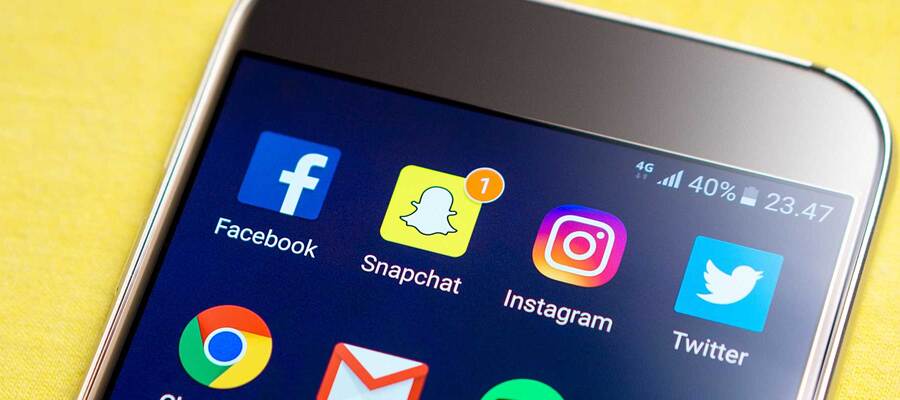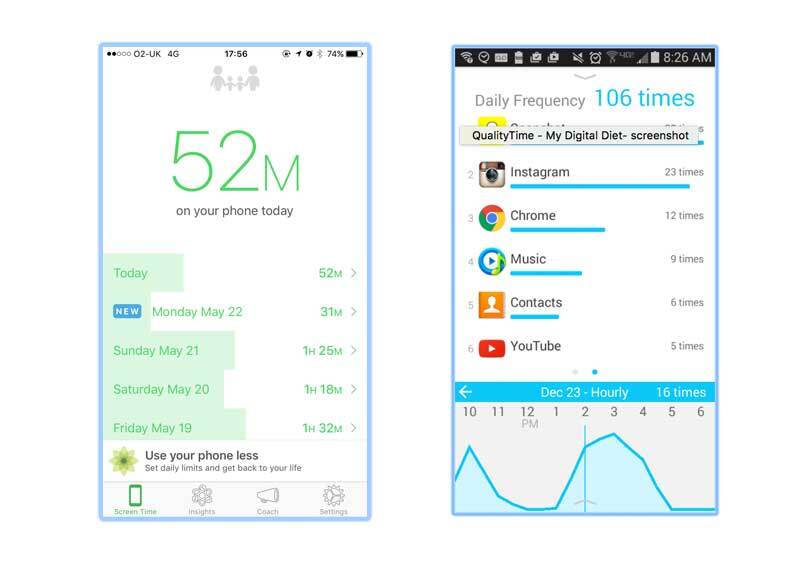
Does social media damage your mental health?
In May, the Royal Society for Public Health (RSPH) and Young Health Movement published a report claiming that social media is damaging to your mental health. In this article, we will explore what the report says and what you should do about it.
Skip to the bottom of the article to see our infographic.
What did the report say?
The report was titled "#StatusOfMind: Social media and young people's mental health and wellbeing". You can download the report here.
It looked at the effect of social media on the mental health of young people. They surveyed 1,479 16-24-year-olds to ask them to self-report on how they felt social media affects things like sleep, mood and self-image.
It concluded that social media had both positive and negative points but that, overall, it had a negative impact on people's mental health.
It went on to rate the social networks based on how positive or negative they were. YouTube, for example, came out slightly positive whereas all other social networks: Twitter, Facebook, Instagram and Snapchat came out negative. Instagram came out as the most negative.
Different networks had different effects. For example, YouTube came out poorly for sleep but well for awareness and self-expression. Facebook scored well for emotional support, but poorly for bullying and body image.
What are the negative points?
Sleep. Social media can affect sleep in a variety of ways. It is addictive. We can find ourselves staying up well past when we planned to go to sleep telling ourselves we will watch just one more cat video, or scroll down our newsfeed just one more time.
Second, we can find ourselves checking our phones and notifications when we wake up during the night rather than going straight back to sleep.
Third, we can be woken by the flashing and the beeping of our phones that continues 24/7.
Body image issues. Photos posted on Instagram, for example, are not representative of wider society or reality, either.
Photos are predominantly posted by people who are very comfortable with their body. These images set unrealistic standards for how we should look. The reality is that the overwhelming majority of us do not have perfect bodies. But we are less likely to post pictures than the lucky few who do.
Further, these images do not represent reality because a variety of editing tools and filters are then applied to make the image look better than it is. Instagram, in particular, is famous for its easy-to-use filters that make a scene look better than it did.
Unrealistic lifestyles. People rarely post on social media when they are doing mundane or boring things. We tend to post when we are at social events, have holiday photos or are doing other things of note.
"Seeing friends constantly on holiday or enjoying nights out can make young people feel like they are missing out while others enjoy life."
The report suggests that it is this that leads to higher levels of anxiety and depression among those who are heavy social media users (more than two hours per day).
Looking at these from the other side can make it look like everyone else has a brilliant life in which they are always travelling, seeing friends, eating in fancy restaurants and doing other enjoyable activities. We then look at our own life and feel bad.
Fear of missing out. A lot of anxiety can be caused by feeling the need to stay connected in case we miss out. For example, we may worry that our friends will organise a social event and if we do not check out messages regularly, everyone else will attend, and we will miss it.
This is a real risk, but in reality, the social consequences are not that bad. We are unlikely to be cast out or forgotten about by our social circle because we miss a trip to the pub.
What are the positive points?
Access to expert information. The internet has been brilliant for making information available. Encyclopaedias used to be for the rich. Now almost everyone in the world has access to sites like Wikipedia, a larger and more accurate encyclopaedia than anything humanity has precious crested.
It has also been useful for health information. Social media allows people to share the best and most useful information. When you are worried, you can not only access high-quality information but even crowdsource it from your friends.
Access to personal stories. One of the most powerful elements of the support group at run at Anxiety Leeds is that people can listen to each other's stories and realise that they are not alone.
Social media has done an unrivalled job at making this information available without having to leave your house. People use social media to share deeply personal stories about what they are going through. Reading, listening and watching to these can be inspiring, informative and comforting.
Emotional support. Social media allows people to support each other through tough periods of their lives, and form new connections with people struggling with similar issues. That makes people more resilient and makes support more widely available when required.
Stronger relationships. Social media can be used to support and strengthen existing social relationships. It allows you to stay in touch regardless of distance and other obstacles that would make a face-to-face relationship difficult or impossible.
Is the report true?
The report is published by the Royal Society for Public Health, who are a well-known and long established organisation. This suggests the report will be accurate and representative.
However, there are several reasons why we should be cautious about how we interpret the results.
First, it is a survey in which people self-report about how they feel. This can be useful but does not measure whether people's mental health has changed, or whether they just feel it has.
For example, people could be worried about things like body image already, or not have a great sleep pattern, and latch on to social media as one of the causes for it when in fact these were underlying problems.
The only way to know for sure would be to run a controlled trial in which we took a group of participants and split the, into two groups. We could then subject half of them to social media and not expose the rest, and then measure which group does better.
This would be difficult to do because social media is so pervasive in our society. And it may be a self-report survey is the next best thing. However, it is far from a perfect replacement, so we need to bare that in mind.
However, the report also cites many research papers to back up the findings of the survey. So although this report data itself is based on self-reporting, the effects found here are also backed up by research. Therefore, it is broadly safe to assume the results are correct.
Second, this survey focused on young people. It may be that this is the best group to use because they are the heaviest users of social media.
However, it could also be that young people are more affected by social pressures and the influence of social media, and therefore that these results are not applicable to people older than 24 years old.
What should we do about it?
It seems very plausible that social media does have a negative effect on our mental health. Luckily, there is a range of things we can do about it.
Sleep. Sleep is critical to good mental health, and good health in general. We devote a whole chapter to it in Do More, Worry Less.
Here are some ideas for improving your sleep:
- Move your electronics to another room. Put your chargers away from your bedroom so that you are not sleeping with devices that peep, and so you are not tempted to check your phone in the middle of the night.
- If you rely on your phone for your morning alarm, consider getting a separate alarm clock (or use an old phone that you do not use for anything else). You may also be able to turn your phone off as some will turn themselves back on at the time the alarm is supposed to go off.
- Use the "quiet mode" on your phone to silence notifications during sleeping hours.
- Set an alarm for your bedtime. Do not turn it off until you have closed your computer. Use snooze if necessary.
Cognitive interventions. A greater understanding of how and why you are feeling a certain way can help you work through your thoughts.
Once we understand that social media is not a true representation of life: people post their best moments and filter their photographs, we can remind ourselves of this fact when we begin to feel down about how mundane our own lives seem by comparison.
Limit your social media use. The most harmful effects appear for users who use social media for two hours per day or more. Even if you do not use social media that much, reducing your usage may be helpful.
We may often be surprised by the amount of time we spend on it. A great app to track this for iPhone is called Moment. It will give you a breakdown of how much time you spend on your phone per day and what apps you are using.

If you have an Android phone, try the app QualityTime, which does the same thing. If you use a desktop computer, you can use browser extensions such as StayFocused or KeepMeOut to monitor your social media usage and block you from them if you spend too much time there.
Target your social media use. Avoiding using social media to fill time. Find something else to do with your spare moments instead. When you are on social media, have a clear purpose: are you on there to share something with your network, reconnect with friends, organise an event, etc. When you have achieved that purpose, log off.
Infographic

P.S. Don't forget to like us on Facebook and follow us on Instagram (the irony is not lost on us).
Metadata
Published 29 May 2017. Written by Chris Worfolk.